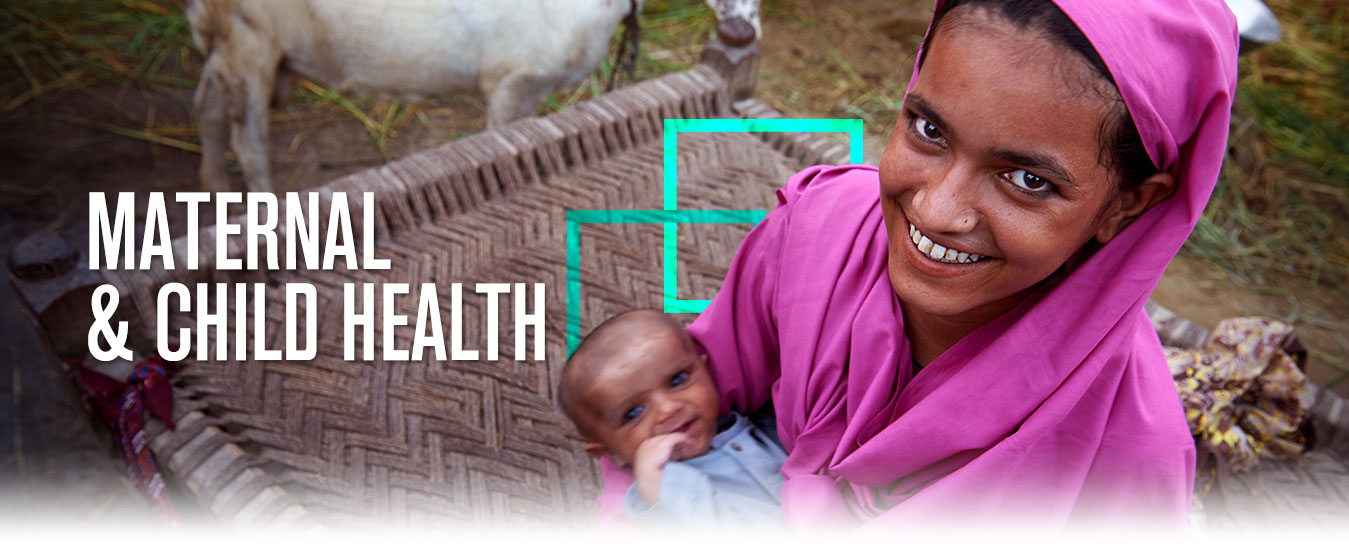
1
2
3
4
5
6
7
8
9
10
11
12
13
14
15
16
17
Despite global efforts to boost immunization, there are over 20 million zero-dose (never-immunized) and under-immunized children globally.
Pakistan hosts 7 million of these children. A combination of demand and supply-side barriers explains the endemic pockets of low immunization in Pakistan. Among these are weak linkages between the community and health system and gender and social norms which limit accessibility for outsiders, especially the males (including health workers), making it difficult to reach vulnerable households with information and counseling interventions.
Low parental knowledge and awareness further exacerbates the problem, causing missed opportunities for immunization and a detrimental impact on immunization timeliness and coverage rates.
To tackle this issue, IRD implemented a three-week school-based training initiative in hard-to-access communities.
Adolescent girls enrolled in grades 8-10, graduated from the program to become ‘Kiran Sitaras’ (Shining Stars). Through the training initiative, IRD provided Kiran Sitaras with immunization knowledge and enhanced their interpersonal, communication, and leadership skills.
The program specifically equipped them to identify and link zero-dose and under-immunized children to immunization services, respond to caregivers’ queries, concerns, and misconceptions regarding immunization, and counsel them on its benefits.
The Maternal and Child Health program provides a unique platform for organically increasing immunization-related awareness and demand, and for enhancing immunization outcomes in the most vulnerable communities.
After Kiran Sitaras had completed community mobilization, the MCH team conducted follow-up visits of each household in the community to verify the immunization status of children whom the Kiran Sitaras had screened. To assess the increase in immunization uptake and ensure immunization of children due for a vaccination, caregivers of zero-dose and under-immunized children and those with pending immunizations were approached to visit mobile immunization camps set up in the target communities.
Deploying community mobilization from a grassroots level and using internal catalysts to connect communities to the existing health services is a transformative approach to strengthen the health system in marginalized areas.
Coming from the same socio-cultural context and having the relevant technical information, these girls can effectively counsel caregivers (primarily mothers) who lack relevant knowledge about vaccines, immunization services, and vaccine timeliness, thereby increasing immunization uptake.
The training initiative was implemented across six schools in the selected study sites. A total of 591 trained Kiran Sitaras conducted community mobilization and screened >10,000 households in their communities.
They identified >1,000 children as under-immunized and zero-dose. The MCH team verified the Kiran Sitaras’ data, by visiting the same households, which showed accuracy levels of 90.3% and 49.7% for zero-dose and under-immunized children respectively, thus validating the potential of Kiran Sitaras to recognize zero-dose and under-immunized children.
When setting up mobile immunization camps in the communities, almost 50% of the invited children had already completed their pending immunizations, thus proving Kiran Sitaras’ ability to effectively counsel caregivers, address misinformation, and motivate caregivers to avail immunization services.
IRD aims to create a force of 100,000+ Kiran Sitaras by scaling the project across Pakistan. Furthermore, the intervention can be adopted across other LMICs to tackle low immunization coverage rates.
